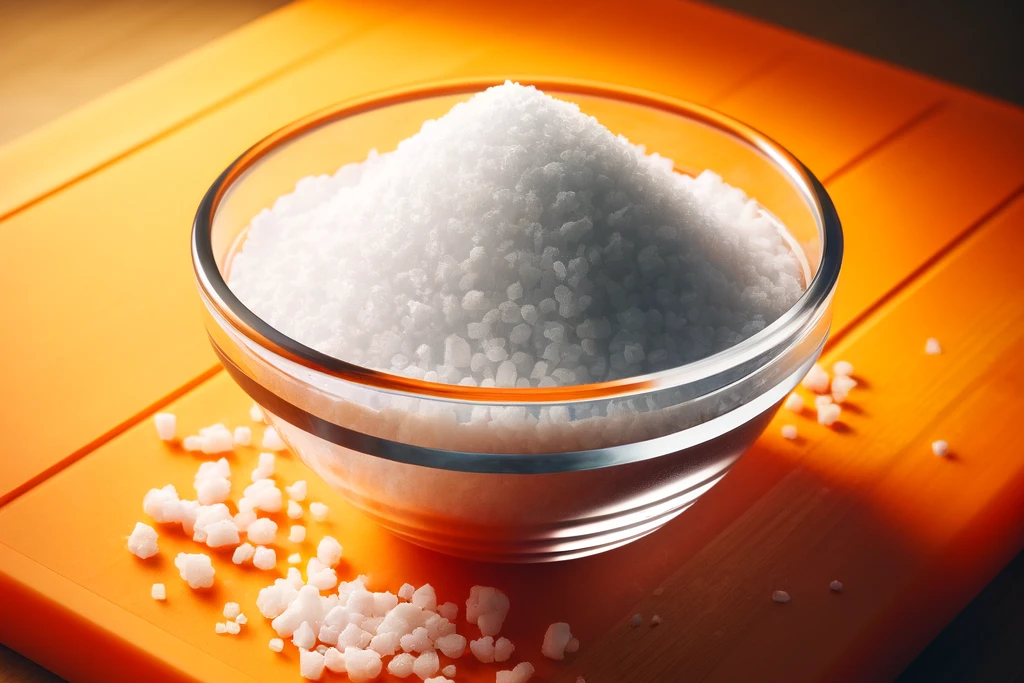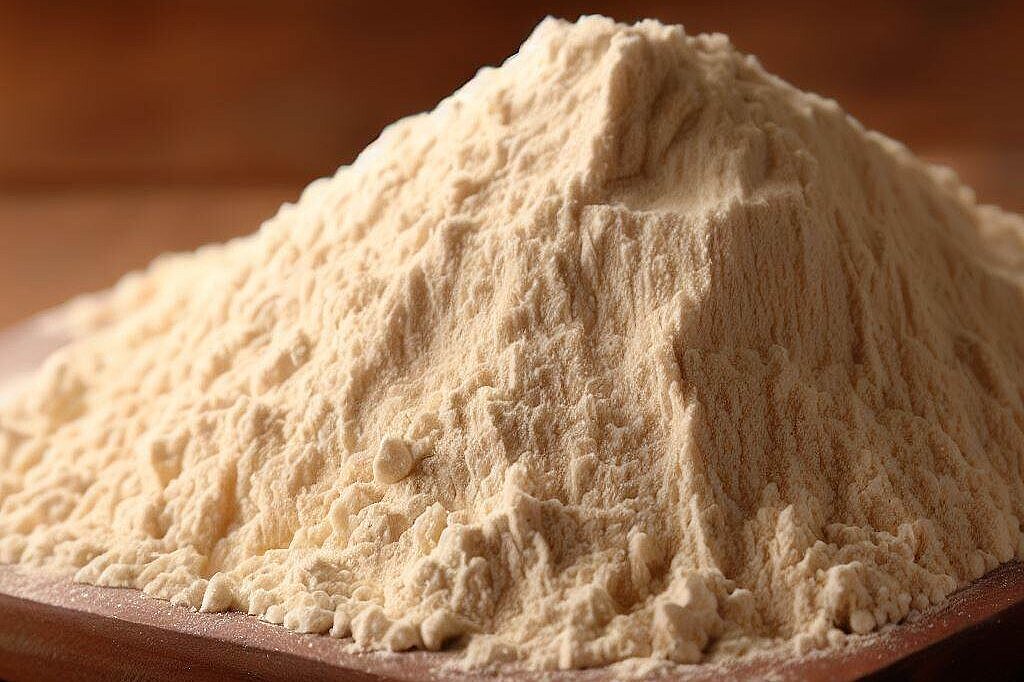Potassium carbonate

Potassium carbonate is a chemical compound consisting of potassium and carbonic acid. It is also known as potash and is a white, crystalline powder. Potassium carbonate has various applications in industry, agriculture and medicine. But what does it have to do with dogs? In this article you will find out what potassium carbonate means for dogs, what its advantages and disadvantages are and what you should look out for.
What is potassium carbonate?
Potassium carbonate is a salt that is formed by the reaction of potassium hydroxide with carbon dioxide. It is soluble in water and forms an alkaline solution. Potassium carbonate is an important component of soap, glass, ceramics, fertilizers and fire extinguishers. It is also used as a food additive (E501) to regulate the pH value, improve shelf life or influence baking properties.
Potassium carbonate is not to be confused with calcium carbonate, which consists of calcium and carbonic acid and occurs as limestone or marble. Calcium carbonate is a common feed additive for dogs and cats to cover their calcium requirements. Calcium is the most abundant mineral in the body and builds the skeleton.
What are the benefits of potassium carbonate for dogs?
Potassium carbonate has several benefits for dogs due to its alkaline properties. Alkali means that it can neutralize acidic substances. This can be helpful in the following situations:
- Stomach acidity: if the dog produces too much stomach acid or eats acidic foods, this can lead to heartburn, stomach pain or vomiting. Potassium carbonate can bind the excess acid and thus alleviate the symptoms.
- Uric acid stones: If the dog has too much uric acid in the urine, this can lead to crystals or stones in the bladder or urinary tract. This can lead to pain, blood in the urine or urinary retention. Potassium carbonate can increase the pH value of the urine and thus promote the dissolution of the stones.
- Skin problems: If the dog suffers from skin irritation, itching or eczema, this may be due to hyperacidity of the skin. Potassium carbonate can soothe the skin and restore the protective acid mantle.
What are the disadvantages of potassium carbonate for dogs?
Potassium carbonate also has some disadvantages for dogs due to its high alkalinity. Alkalinity means that it can increase the pH value. This can be harmful in the following situations:
- Stomach ulcers: If the dog already has stomach ulcers, increasing the pH can delay or even worsen healing. Potassium carbonate can irritate the mucous membrane of the stomach and cause bleeding.
- Cardiovascular problems: If the dog suffers from heart failure or high blood pressure, an increase in pH can impair heart function or increase blood pressure. Potassium carbonate can disrupt the balance of electrolytes such as sodium and potassium in the blood and cause cardiac arrhythmias.
- Kidney problems: If the dog suffers from renal insufficiency or kidney stones, an increase in pH can worsen kidney function or promote the formation of stones. Potassium carbonate can increase the excretion of calcium and magnesium in the urine and thus lead to calcium oxalate or struvite stones.
What should you watch out for?
Potassium carbonate is not a harmless substance that you can give your dog without hesitation. It has both advantages and disadvantages and should only be used after consulting a vet. The vet can determine the correct dosage, duration of use and possible interactions with other medications. You should also note the following points:
- Potassium carbonate is not a substitute for a balanced diet. Your dog needs a variety of nutrients to stay healthy. Potassium carbonate cannot cover the need for calcium or other minerals.
- Potassium carbonate is not a panacea for all ailments. Your dog needs an accurate diagnosis to find the cause of his problems. Potassium carbonate can only alleviate the symptoms, but not the cause.
- Potassium carbonate is not a harmless powder. Your dog cannot simply swallow or lick it. Potassium carbonate can cause burns in the mouth, throat or stomach. You should always give it with plenty of water or mix it into the food.
Potassium carbonate is a chemical compound that acts as an alkali. It can have some benefits in dogs, such as neutralizing stomach acid, dissolving uric acid stones or soothing skin irritations. However, it also has some disadvantages, such as irritating stomach ulcers, impairing cardiovascular function or promoting kidney stones.
If you notice any signs of hypersensitivity or poisoning in your dog, you should see your vet immediately. We are not a substitute for a vet, but we try to be as accurate as possible. Every dog reacts differently and we recommend you get a second opinion or consult your vet if in doubt.
Stay healthy and take good care of your four-legged friend!😊
Similar to Potassium carbonate
Sodium carbonate, also known as soda ash or washing soda (chemical formula: Na2CO3), is a white, crystalline powder that is highly soluble in water and forms a strongly alkaline solution. It is...
Potassium bicarbonate can have several benefits for dogs, especially if they suffer from certain conditions or are deficient in potassium or bicarbonate. Potassium is a vital mineral that is...
The daily requirement of pure calcium varies depending on the body weight and age of the animal. A puppy needs more calcium than an adult dog as it is still growing. A dog weighing 10 kg, for...
Magnesium carbonate is a compound of magnesium and carbonic acid, which can occur in various forms. It is a white, odorless and tasteless powder that is slightly soluble in water. Magnesium...



